Inauguration of the School of Artificial Intelligence at Our University
Author:Sun Yangguang and Zhu Menghuan Edit:Lai Pan Uploader:Zhu Menghuan Reviewer: Ke Zuntao Published:2025-06-06 Views:
On the afternoon of June 5, the inauguration ceremony of the School of Artificial Intelligence and the Expert Forum on AI Development were held at the Academic Exchange Center of our university. Attendees included Song Quan, Director of the Department of Education of the National Ethnic Affairs Commission; Academician Zhang Pingwen, President of Wuhan University; Feng Dan, Vice President of Huazhong University of Science and Technology; Wang Fei, General Manager of Xiaomi’s Wuhan Headquarters; Xu Yeqin, Party Secretary of our university; Liu Yi, Deputy Party Secretary and President; as well as university leaders Li Hongyan, Song Fajun, and Fang Debin. Over 200 participants attended the event, including experts and scholars from Peking University, Wuhan University, Huazhong University of Science and Technology, Beijing Institute of Technology, Minzu University of China, and Nanjing University of Science and Technology, as well as enterprise representatives, alumni, university department heads, and faculty and student representatives from the School of Artificial Intelligence. The event aimed to explore new paths for AI discipline development and talent cultivation. Song Fajun and Fang Debin chaired the inauguration ceremony and the expert forum, respectively.
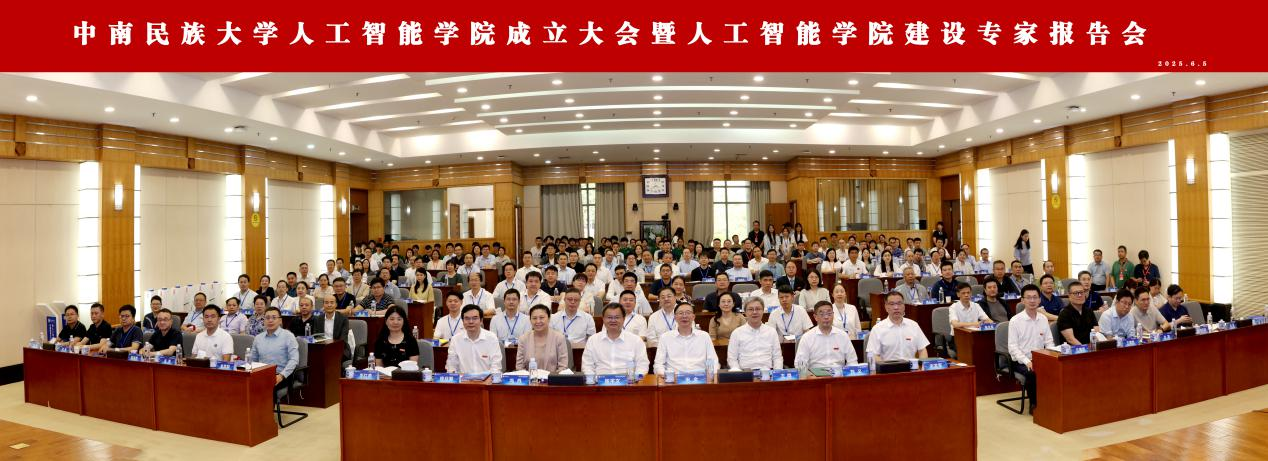
At the conference venue. Image provided by the School of Artificial Intelligence
During the ceremony, Zhang Pingwen, Song Quan, Feng Dan, Wang Fei, Xu Yeqin, and Liu Yi jointly unveiled the nameplate of the new School of Artificial Intelligence.
In his speech, Liu Yi stated that the establishment of the School of Artificial Intelligence marks another significant step in advancing the university’s “Double First-Class” initiative and serving national strategies. He emphasized the university's commitment to its mission of nurturing talent for the Party and the nation, strengthening foundational education with strong values, promoting interdisciplinary integration, enabling scientific paradigm innovation, and adhering to principles of “AI for Good” and “Human-Centered AI.” The university aims to build a cross-disciplinary AI talent development system—“AI + X”—to cultivate professionals with deep national commitment, cutting-edge technical expertise, and practical industry experience.
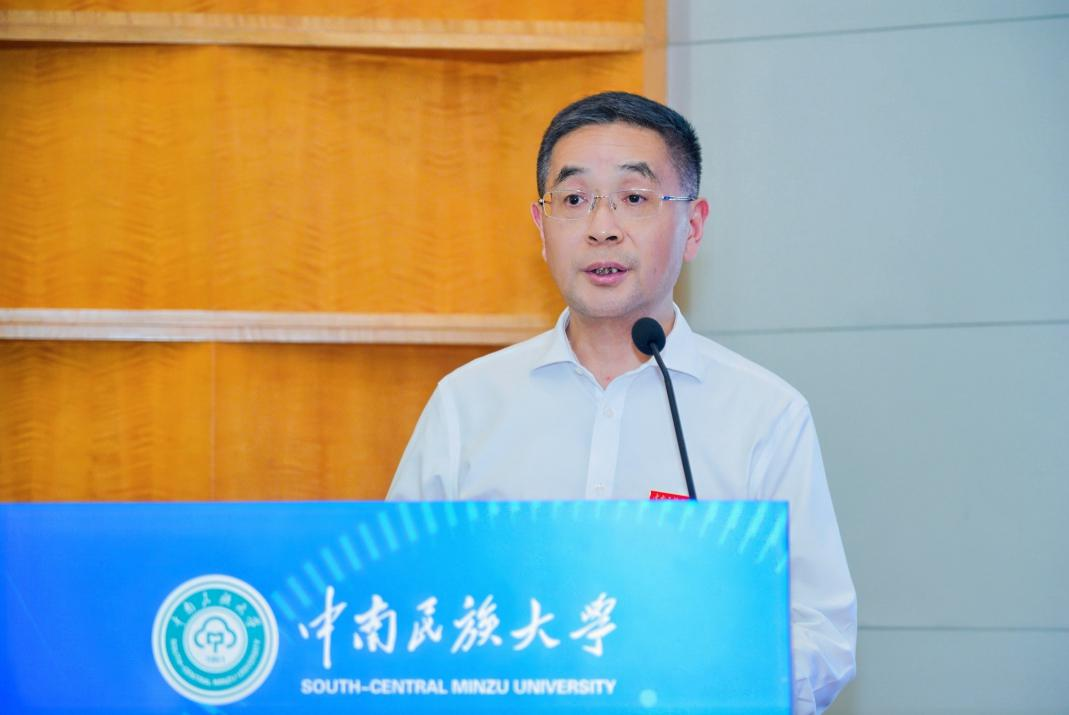
Liu Yi delivers a speech. Image provided by the School of Artificial Intelligence
Academician Zhang Pingwen congratulated the university on the establishment of the new school, calling it both a milestone in the university’s development and a strategic response to the demands of the times. He expressed hope that the School of Artificial Intelligence at South-Central Minzu University would strengthen its faculty team, deepen industry-academia integration, and leverage the unique strengths of an ethnic minority university. He encouraged the school to focus on interdisciplinary research in areas such as AI and ethnic cultural heritage, frontier governance, ecological protection, and economic development in ethnic regions, forging a new, distinctive path for AI discipline development.
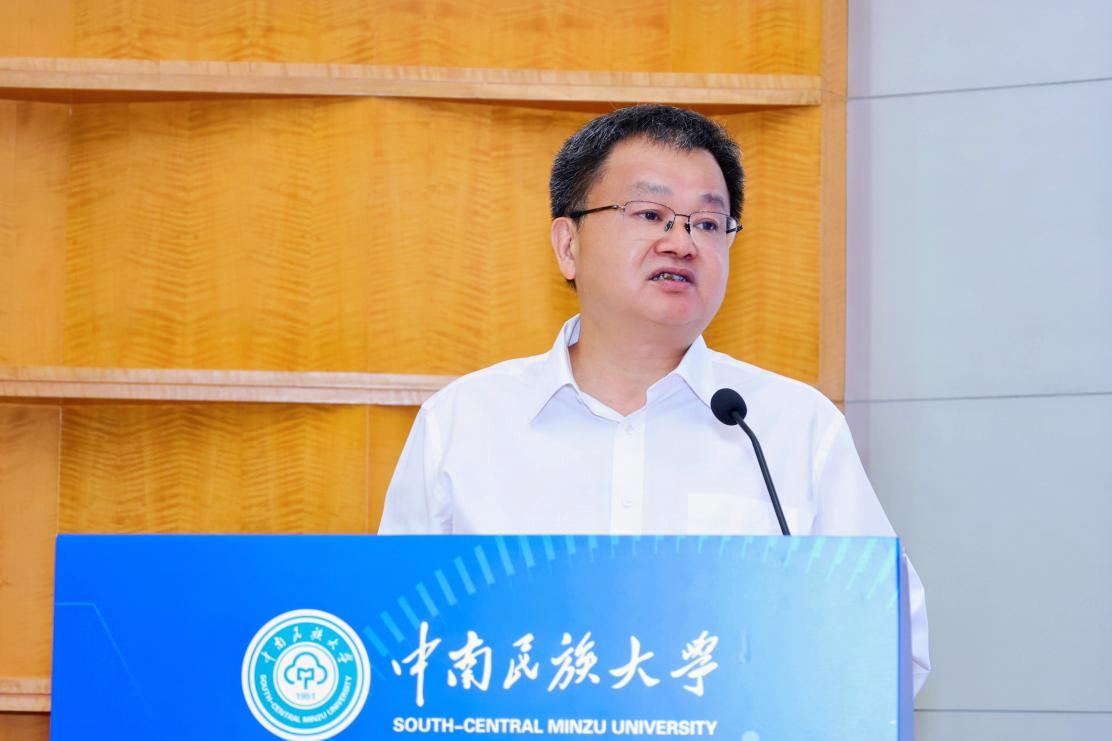
Academician Zhang Pingwen delivered a speech. Image provided by the School of Artificial Intelligence
Zeng Zhigang, Dean of the School of Artificial Intelligence and Automation at Huazhong University of Science and Technology, delivered a speech on behalf of peer institutions. He suggested that the new school should focus on its unique characteristics to build a competitive advantage, deepen collaborative efforts to advance the integration of industry, academia, and application, and concentrate resources to create an innovative ecosystem. Speaking on behalf of corporate partners, Wang Fei stated that Xiaomi Group looks forward to deepening cooperation with the new school, actively promoting a university-enterprise co-education mechanism, and jointly building the School of Artificial Intelligence.
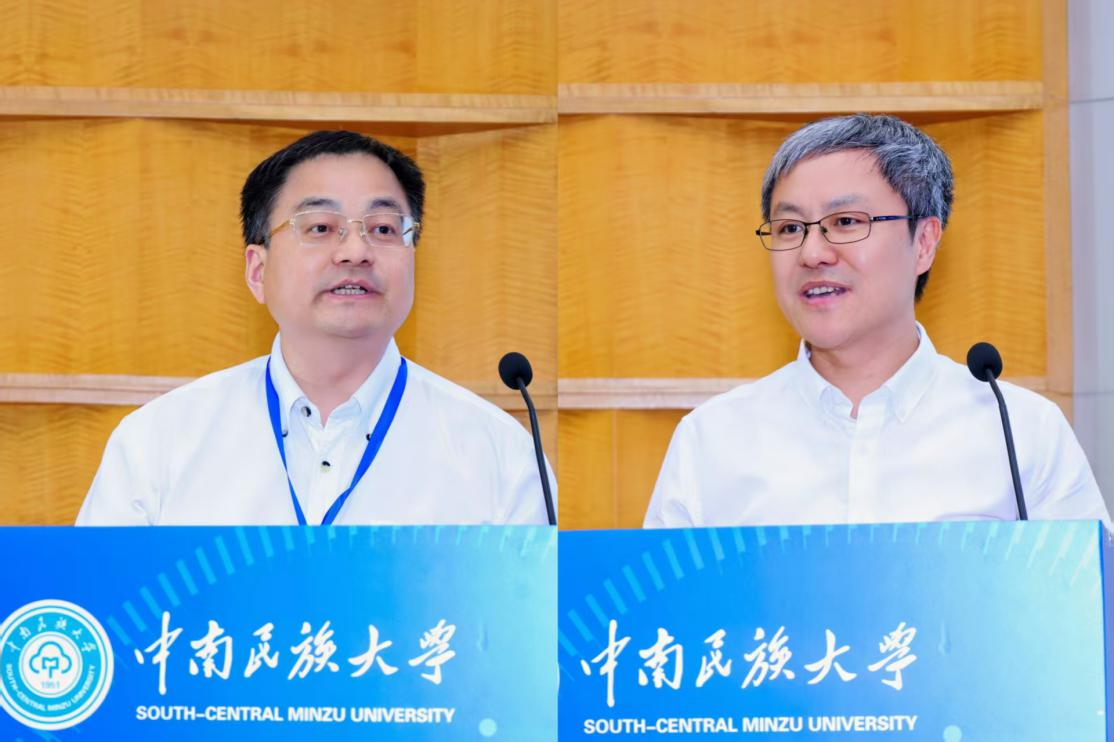
Zeng Zhigang and Wang Feng delivered speeches. Image provided by the School of Artificial Intelligence
At the ceremony, Li Hongyan announced the university’s official document on the establishment of the School and appointment of its leadership. Tie Jun, Dean of the School of Artificial Intelligence, presented the School’s development plan, highlighting its focus on three pillars: disciplinary and program development, transformation and upgrading of the School, and cross-disciplinary integration within the university. He stated that the School will align itself with national needs in the AI era and the construction of a shared Chinese national identity, emphasizing a triad of capabilities—algorithmic expertise, patriotic values, and engineering practice—to train AI professionals who are politically committed, technically competent, multidisciplinary, and service-oriented.
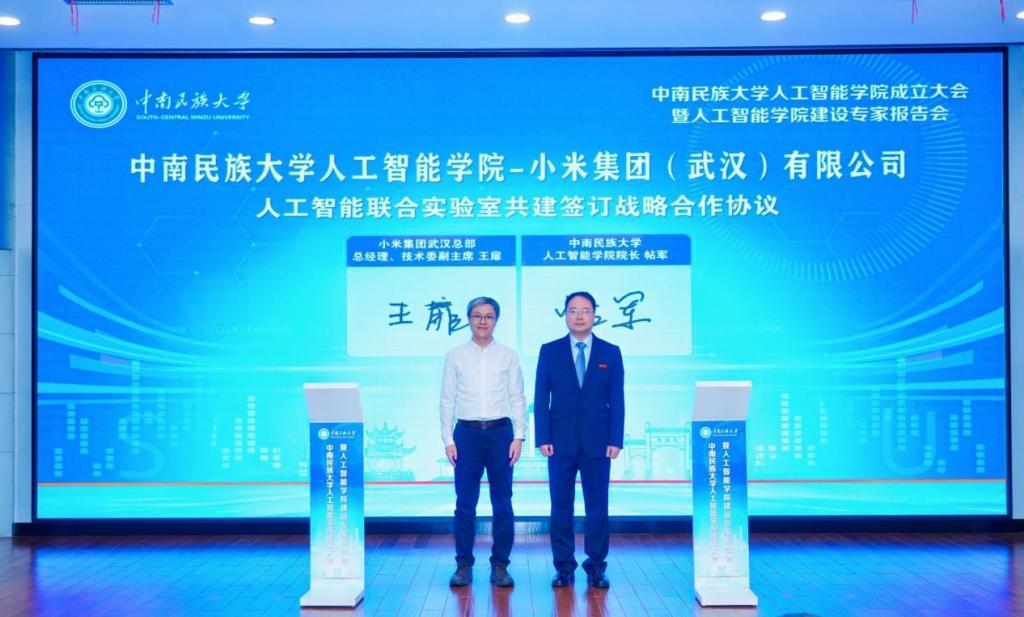
Signing ceremony. Image provided by the School of Artificial Intelligence
The ceremony also featured the signing of a cooperation agreement between South-Central Minzu University’s School of Artificial Intelligence and Xiaomi Technology Wuhan Co., Ltd. to jointly establish an AI Joint Laboratory. Both parties pledged to strengthen collaboration in talent development, technological empowerment, and innovation.
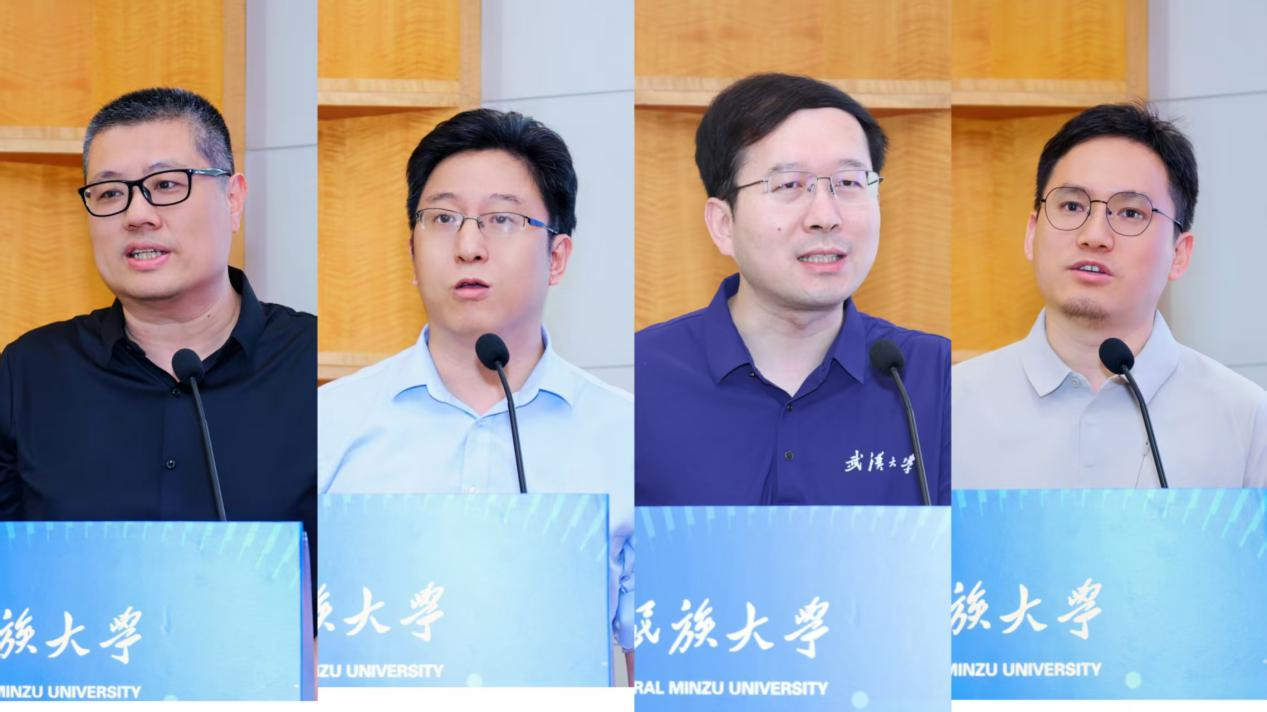
Experts give reports. Image provided by the School of Artificial Intelligence
Following the inauguration, the university held an AI Development Expert Forum. Experts including Professor Wang Tengjiao from Peking University’s School of Computer Science, Professor Bai Xiang, Dean of the School of Software at Huazhong University of Science and Technology, Professor Du Bo, Dean of the School of Computer Science at Wuhan University, and Professor Shu Xiangbo from the School of Computer Science and Engineering at Nanjing University of Science and Technology delivered keynote speeches. Their talks covered topics such as computational social science in the AI era, progress and trends in document intelligence large models, medical large-model methodologies and practices, and federated learning methods for aggregation-oriented optimization.